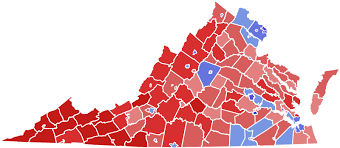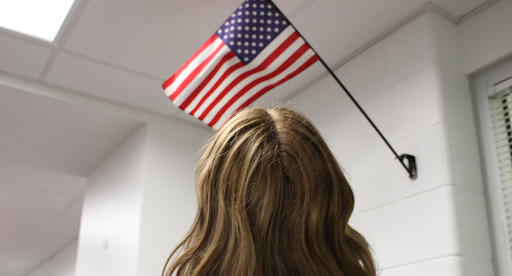Does GOP sweep spell disaster for Democrats?

Photo courtesy of Wikimedia Commons under Creative Commons License
Governor-Elect Glenn Youngkin’s victorious electoral map looks a lot different than years past in Virginia, securing the first Republican Virginia governorship since Bob McDonnell’s term ended in 2014.
Virginia has been on a blue streak for many election cycles, voting for Democrats in every general election since George W. Bush ran in the 2004 presidential election. But the 2021 Gubernatorial election set a different tone, and it’s one that has muddied the electoral waters in Virginia for the 2022 midterms and possibly for the 2024 presidential election.
Glenn Youngkin, a businessman from Richmond, upset the former Governor and leader within the national Democratic party Terry McAuliffe, adding to a huge GOP triumph in Virginia and across the country. After a sound defeat, many Democrats in Virginia and the nation over have been scrambling to figure out what happened in this election. The answers, though, are complicated.
In Virginia, former President Donald Trump was not very popular. He never came close to winning the state in either of the elections he was on the ballot, and during his presidency, the polling for his job approval never eclipsed 45% approval in Virginia, according to the data from the Real Clear Politics reporting. The 2017 Republican Virginia governor candidate, Ed Gillespie, struggled mightily to separate his name from Donald Trump’s, costing him the election. Youngkin however, seems to have succeeded.
Many ads from the McAuliffe campaign focused around Youngkin and his gracious acceptance of the former President’s endorsement; they tried vigorously to tie the Youngkin campaign to Trumpism, but it never stuck. Ed Gillespie and Glenn Youngkin differ in many ways, but the main difference is how they played the Trump card, so to speak, during their respective elections.
Gillespie dived straight in, echoing many of Trump’s same talking points and mannerisms, while Youngkin kept the same agenda goals while completely removing the Trump-esk mannerisms. Most of the time, Youngkin would go entire speeches and rallies without mentioning Trump’s name. Having the freedom to not be attached at the hip to Trump gave Youngkin much more of an opportunity to lay out his vision without having to answer for some of the outbursts that Trump was famous for.
In past elections where nationwide Democrats have come up short, a big theme has been voter turnout or the lack thereof. But, a worrying sign for Virginia Democrats in 2021 is that voter turnout was actually up from 2017’s election. Even in blue areas such as Fairfax County, turnout was a little better than that of 2017. Statewide nearly 600,000 more votes were cast in 2021 according to the data provided by the New York Times’ elections page.
It isn’t all doom and gloom for Democrats, though. Trends within state elections are much more fickle than those of national elections. For example, Massachusetts and Maryland are two of the most pure blue states in the nation, but both of them have had Republican governors for years. Ed Markey, one of the most progressive senators in the country was re-elected in Massachusetts with flying colors in 2020 despite the fact that they have had a Republican-led government for quite some time.
Political party affiliation has shown for many years to not matter as much in state elections as it does in nationwide elections. The party of the governor of Virginia and the party the state votes for in the electoral college have almost never been consistent. Even in 2002, when Democrat, and now senator for Virginia, Tim Kaine was governor, he had a Republican Lieutenant Governor. Within this year’s election, despite a solid win for both Governor-Elect Glenn Youngkin and Lt. Governor-Elect Winsome Sears, the attorney general’s race was much closer.
This election, like all others, has many different avenues for interpretation. Republicans’ prospects in the state look a lot better than they did two months ago, but a potential Trump candidacy again in 2024 could easily ruin that if Trump is to remain generally unpopular in the state. The 2022 midterms loom, but Virginia does not have a senator up for re-election, which might just be a miracle for the state Democratic party as they reel from this defeat.








